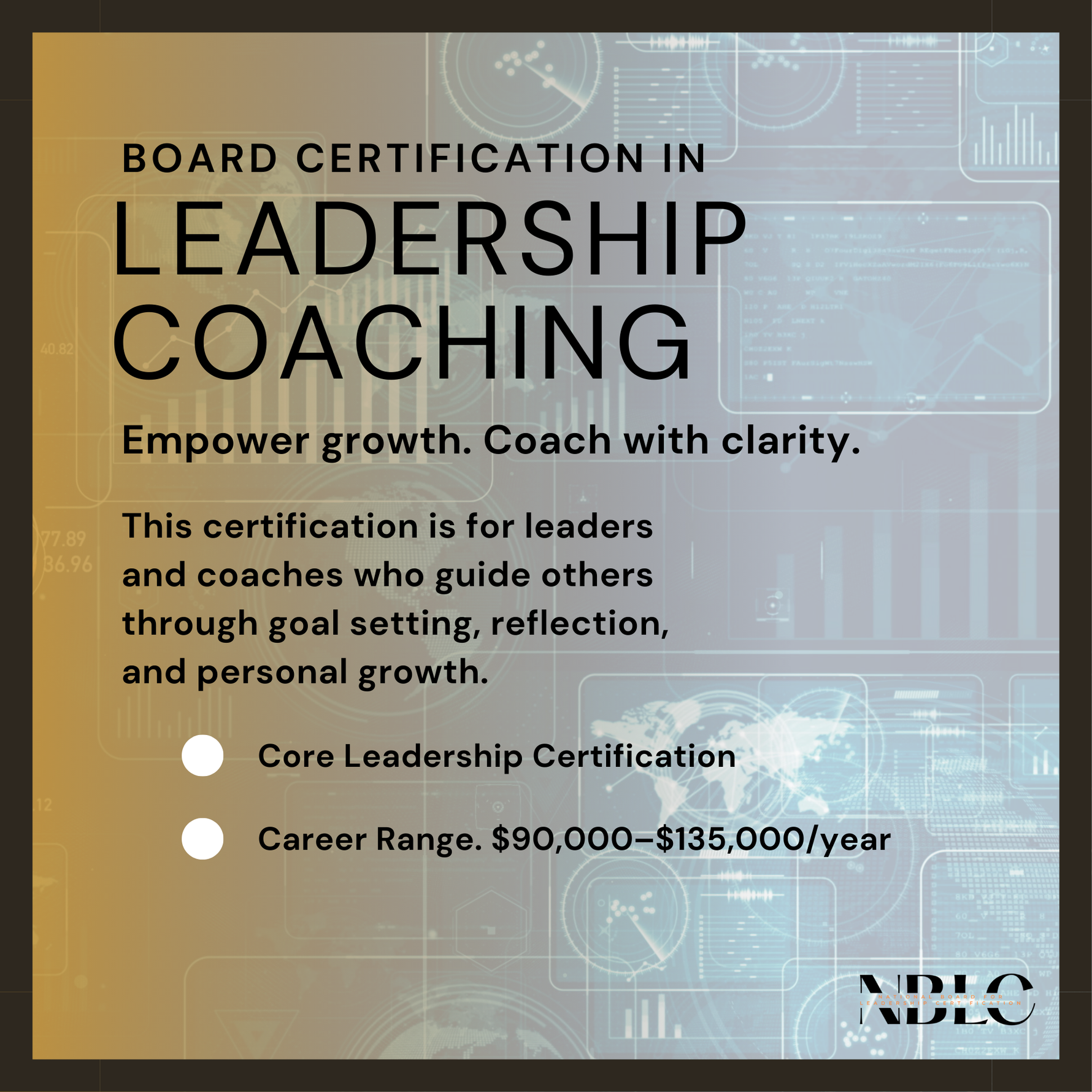– Amanda J., Leadership Coach & HRBP
This certification gave structure to my coaching — I feel more confident, intentional, and credible in how I guide leaders.

About This Certification
is designed for coaches, mentors, HR professionals, and leaders who guide others through growth, development, and change. This certification equips you to integrate leadership science, coaching methodology, and strategic communication into transformative one-on-one and team coaching experiences.
Whether you're coaching executives, developing talent, or building a leadership pipeline — BCLC ensures you're doing it with integrity, structure, and lasting impact.
Recommended for: Coaches, Leadership Development Professionals, HR Leaders, Executive Mentors, Consultants, and People Managers
Evaluate and validate your ability to coach leaders with integrity, strategic alignment, and measurable impact. Through scenario-based assessments and portfolio submissions, you’ll demonstrate mastery in:
Assessment Framework
You will complete a four-component portfolio based assessment applied leadership assessment, focused on real-world performance:
Education: Undergraduate Degree
Experience: 2+ years in coaching, mentoring, or leadership development.
Training: 50 hours of coaching-specific training (methodologies, feedback, emotional intelligence).
Alternative Pathway:
Program Costs & Payment Options
Certification Path
Cost (Full / Member)
Core Certification
$675 / $540
Core + Specialization
$999 / $750
Core/Spec/Learning Path
$1,598 / $1,199
NBLC Members receive 25% off all programs. Join Membership >
Enhance your certification with a targeted specialization module in one of five domains. Specialization modules are optional but strongly recommended to tailor your learning to your sector.
Specialization
Details
Executive Leadership Coaching
Guide C-suite leaders and high-potential executives in strategic thinking, decision-making, and leadership growth.
Assessed Domains: Coaching Executives, Strategic Decision Coaching, and Leadership Mindset Development
Performance & Productivity Coaching
Optimize individual and team performance with goal-setting, accountability, and behavior-driven strategies.
Assessed Domains: Productivity Coaching, Goal Setting, and Performance Metrics
Career & Transition Coaching
Support professionals in career advancement, role transitions, and workforce reintegration for long-term success.
Assessed Domains: Career Mapping, Transition Strategies, and Workforce Reintegration
Organizational & Team Coaching
Develop high-performing teams through systemic coaching, collaboration techniques, and leadership dynamics.
Assessed Domains: Team Coaching Models, High-Performance Team Development, and Leadership Coaching Techniques
Wellness, Resilience & Emotional Intelligence Coaching
Strengthen mental resilience, stress management, and EQ-based leadership for sustainable success.
Assessed Domains: EQ Development, Resilience Coaching, and Stress & Burnout Management
* Membership includes: certification discounts, 1 free retake/year, quarterly coaching, research access